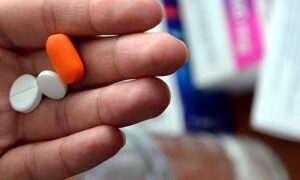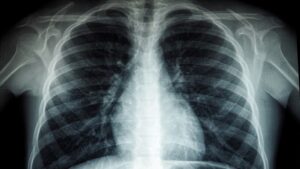[ad_1]
WHAT ARE THYROID FUNCTION TESTS AND IN WHAT CONDITIONS ARE IT DONE?
Thyroid function tests consist of blood hormone and antibody tests and iodine uptake test.
TSH Lyrics: The most reliable method of obtaining information about thyroid gland functions in the initial period is the measurement of TSH level. As a result of this research made with a simple blood test, the TSH level should be between 0.4-4.00 mIU/L in healthy and adult individuals. Detection of the hormone level above this range indicates hypothyroidism, that is, insufficient thyroid functions. A low TSH level, although a rarer condition, indicates hyperthyroidism, which develops in the form of overactive thyroid gland.
T3 Test: The T3 test is usually a blood test used to detect the presence of hyperthyroidism or to determine the extent of the disease. In hypothyroid patients, after the TSH level rises and the T4 hormone level decreases, the last affected value is T3 hormone, so it is not diagnostic in terms of diagnosis. However, in patients with hyperthyroidism whose TSH level is below normal, T4 hormone levels are usually normal, while T3 hormone levels are primarily elevated. Therefore, the T3 test has an important place in the diagnosis of hyperthyroidism. In healthy individuals, the level of free T3 hormone in the blood should be in the range of 2.5-5 pg/ml.
T4 Tests: T4 hormone circulates in the blood in two different ways. The first of these is the form of T4 bound to proteins in order to prevent it from entering the tissues that need thyroid hormone. Another form is called free T4 (FT4), which can reach the tissues in order to show the effects of the hormone. While the free T4 level in the blood is low in hypothyroid patients, this value is usually above the normal range in hyperthyroid patients. Evaluation of T4 and TSH results together provides healthier results. In healthy individuals, the level of free T4 hormone in the blood should be in the range of 0.6-1 ng/dl.
Thyroid Antibody Tests: Under normal conditions, antibodies are produced against agents that cause disease in the body, such as bacteria and viruses, in healthy individuals, and these agents are combated. In diseases also known as autoimmune diseases, the body sees its own tissues and hormones as agents and causes destruction by developing antibodies against its own tissues. Hashimoto’s thyroiditis and autoimmune thyroid disease are also included in this group, and the thyroid gland is damaged due to the autoimmune effect. In order to investigate whether a dysfunction detected in the thyroid gland is caused by autoimmune diseases, the levels of hormones such as thyroid peroxidase (TPO) and thyroglobulin in the blood are checked.
Radioactive Iodine Uptake Test: Thyroxine hormone contains a high amount of iodine. For this reason, the radioactive iodine uptake test, which is applied by giving radioactive iodine at a level that will not harm the body, has been developed. With this test, radioactively labeled iodine is given to the body and the path of iodine molecules in the body is examined. By examining the uptake of radioactive iodine, information can be obtained about whether the gland is functioning properly and whether there is hypothyroidism or hyperthyroidism.

WHAT ARE THE SYMPTOMS OF LOW T3 HORMONE?
– Decreased thyroid hormone levels in the blood
-Slowing metabolism and heart rate
-Getting fat
– Hair shedding
-Drying on the skin
-Fracture of nails
-Reduction in energy
-Sleeping state
– Thickening of the voice
-Decreased sexual desire
-Inability to menstruate
-Infertility
– Swelling around the eyes, hands and feet
-Depression in advanced stages can cause slowing of mental functions and body movements.
If low T3 hormone is not noticed and treated, it can lead to coma.
[ad_2]






